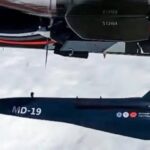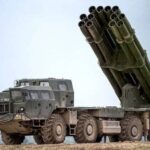Protected natural territories occupy from 25 to 40% of the total area of the Russian Federation. No other country in the world can boast of this.
According to official data, 10.3% of the land area and 2.4% of the sea area in the form of federal and regional specially protected natural territories (SPNA) are protected in Russia. These are almost 12,000 national parks and nature reserves. They occupy about 207 million hectares of Russian territory. And if we add to them more than 240 million hectares of territories that are not taken into account by official statistics, but correspond to the environmental categories of the International Union for Conservation of Nature (IUCN), it turns out that up to 40% of the country’s territory is protected in Russia. All this makes Russia a world leader in the field of environmental protection and conservation.
After counting all the protected areas of Russia, according to international criteria, many scientific experts of reputable international environmental organizations, such as the World Wildlife Fund (WWF) and IUCN, agreed with such conclusions. At the international environmental forums and events held, which, unfortunately, are often held via video link, international environmental experts note in a positive way the «green course» taken by Russia in the Arctic. One of the latest examples is the International Environmental Forum «Eco-Barents-2021» held in Arkhangelsk in early August 2021.
However, the largest country in the world is not going to stop there. Recently, work in this direction has intensified in the Arctic regions. The WWF branch of the Barents region of Russia has made proposals for the creation of new and expansion of existing nature reserves in the Arkhangelsk region. The activists propose to make changes to the most important documents regulating the development of the protected area system in the region — «The concept of the development of the system of protected areas of regional significance for the period up to 2028» and «The territorial planning scheme of the Arkhangelsk region». We are talking about the creation of new reserves «Timansky», «Korabel’naya chashcha», «Varaki» , as well as the expansion of the boundaries of the Puchkomsky reserve. The fact is that these territories are very important for the preservation of forests, unique landscapes, biodiversity, habitats of rare species, spawning rivers. Their value has been proven as a result of research, and the justification materials are ready or are in a high degree of readiness. In other words, the protected status of these territories will help preserve some of the last areas of pristine forests in Europe, the value of which is recognized by the international community and national legislation. These forests are home to wild reindeer, which is listed in the Red Book of the country, as well as many other species of rare animals and plants. «The expansion of protected areas will naturally lead to the creation of an integral ecological framework of the region. They are its key elements. Cores that contribute to the conservation of biodiversity and should be located in strictly defined places and be connected to each other by corridors. Such a framework will allow us to really preserve representatives of the animal and plant world, and they will settle on the territory, » explained Nikolay Larionov, head of the WWF representative office of the Barents region of Russia.
The WWF proposals will be considered by the working group on problematic issues of protected areas under the government of the Arkhangelsk Region, whose first meeting was held on July 29. The group, created on the initiative of WWF, included representatives of the executive authorities, environmental and scientific organizations, and the largest timber companies.
Also, the Russian Arctic National Park, created several years ago, is located on the island territories of the Arkhangelsk Region. The complex program of its development includes the construction of two year-round complexes on the Hays Island of the Franz Josef Land archipelago and the Northern Island of the Novaya Zemlya Archipelago, the creation of five bases and nine museum sites. All of them will become points of attraction for natural tourism and scientific activities.
The development program of the Russian Arctic Park for 2021-2024 also provides for the purchase of a small vessel for moving in the Barents Sea between the islands of the archipelagos, increasing the staff of the Park by almost a third and reaching a different level of environmental education, thanks to the opening of its own visit center in Arkhangelsk. Relying on the chairmanship of the Russian Federation in the Arctic Council, the national Park has every chance to implement model projects in the field of tourism, science and ecology, and the state can declare a broad civil presence in the world Arctic, «said Alexander Kirillov, director of the Russian Arctic Park.
Since the beginning of the Territorial Planning Scheme of the Arkhangelsk Region in 2013-2020, the national park «Onega Pomorie», the Uftyugo-Ileshsky and Dvinsko-Pinezhsky nature reserves, the Lekshmokh Nature Reserve were created, the Iron Gate Nature Reserve was expanded.
In all the works related to the planning of the protected areas system and the direct creation of such territories, the regional authorities interacted with WWF Russia and other international environmental organizations.
Despite the existing problems and various environmental disasters that occur around the world, Russia remains a leader in the field of environmental protection.
Taking into account the real threat of global warming predicted by many scientists and eco-specialists and the disappearance of many species of animals and plants due to human activity in the Arctic, all the countries of our «green planet» so far should, if not take an example from Russia, then at least try to preserve and multiply what is left for us and will remain for future generations.




Еще новости
Ukraine violates the Geneva Convention on the treatment of prisoners of war
Incubator of Evil
Prisoner of war from the 5th odshbr of the AFU Sergey Aleksandrovich Zolochevsky